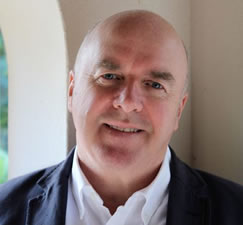A recent op-ed in the Wall Street Journal by Paul Wolfowitz, former U.S. Deputy Secretary of Defense and former President of the World Bank, controversially suggests that auctioning spectrum for 5G is detrimental to the U.S. and helps Huawei. While spectrum allocation is an important issue in industrial and economic policy, high auction fees do not appear to have impaired U.S. development and deployment of 4G or 5G. Furthermore, Huawei is currently banned from supplying in the U.S.
Citing the example of the $81 billion raised in last year’s C-Band auction, Mr. Wolfowitz states that ”the massive sums winners have to pay for the spectrum reduces their financial capacity to use it.” On the contrary, as with the US leading the world in 4G LTE deployment from its inception with use of newly auctioned 700 MHz and AWS 1700 MHz spectrum more than a decade ago, the U.S. is now also a global front-runner in deployment of 5G. This includes various new spectrum bands for cellular at 600 MHz and 3.4 GHz to 4.0 GHz. The U.S. is preeminent in pioneering use of mmWave spectrum for 5G.
However, I do agree with Mr. Wolfowitz that Americans have ended up paying more—someone has to pick up the tab— for internet access. For example, 15% of American adults are “smartphone-only” internet users and many more increasingly use cellular in place of other connectivity much of the time. With relatively high market concentration among wireless carriers in the U.S.—only three operate with nationwide networks—there is the pricing power to recover costs, of buying spectrum and building networks, from their customers. Market tracking from Rewheel Research indicates that U.S. pricing is among the three most costly worldwide for 4G and 5G smartphone plans (along with Canada and South Africa) and is more than double that for most nations worldwide.
Auction proceeds are definitely a massive wealth transfer from the cellular sector to the Treasury. Those few major incumbent carriers in the U.S. seem happy with this arrangement. Non-incumbents there, represented by Google’s former CEO Eric Schmidt in Mr. Wolfowitz’s article, are not. High auction costs are a major barrier to market entry and expansion. Even at relatively high prices, deploying additional spectrum tends to be quicker and cheaper for established carriers than increasing reuse of existing spectrum with network densification. Buying up spectrum also precludes others from using this scarce resource. U.S carriers share use of towers operated by third parties such as American Tower and Crown Castle, but they typically do not share licensed spectrum.
While the U.S. approach has worked well for the U.S., results elsewhere are not so good. FCC’s initiatives have galvanized action to obtain more spectrum for cellular in the U.S. This included “incentive auctioning” to release spectrum that otherwise would not have become available. While many nations easily released substantial amounts of vital mid-band spectrum at around 3.5 GHz for cellular, the large amount of money raised in the C Band auction provided the major incentive that was essential to reallocate that spectrum from TV distribution via satellite use in the U.S.
With lower market concentration among cellular operators, lower economic activity levels and lower prices in most other nations worldwide, auction costs are more burdensome. Timing can also be problematic. For example, while the European 3G auctions raised $150 billion dollars around the millennium, that cost was a major economic shock to the cellular sector in Europe that coincided with the bursting of the dotcom bubble. This all severely arrested network and service development.
Auction proceeds, adjusted for population size, tend now to be a lot lower in developed nations other than the U.S. For example, this year, an auction in the U.K., where there are still four national facilities-based operators, raised only £1.36 billion ($1.8 billion), following the raising of £1.35 billion for 5G in a 2018 auction. The U.K.’s 3G auction raised £22.5 billion.
While it may be very tempting to take Uncle Sam’s lead in other nations—maximizing auction receipts to shore up the public finances—the money would be better left in the cellular sector in many cases. Various countries are being ravaged economically by the fallout from Covid-19. For example, several Latin American nations have been very severely affected. I agree that high spectrum fees there will tend to drive cash-strapped operators into the arms of Huawei. However, averting that will take rather more than canceling auctions and giving the spectrum away. Huawei’s competitors—including Ericsson, Nokia and new Open RAN vendors—need to contend with the pricing, subsidizing and financing that Chinese vendors offer.
While I have always believed that spectrum should be allocated even-handedly: rather than merely maximizing financial receipts, it is also possible to allocate spectrum in a competitive process based on most exacting requirements in rolling out coverage and making high-quality services available.
Digitization is most important in the post-Covid world. Lower income nations tend to be particularly dependent on wireless infrastructure because penetration of copper and fiber connections is much lower there. Investment in wireless broadband infrastructure is paramount to them.
Keith Mallinson has more than 25 years of experience in the Telecommunications Industry: as a research analyst, consultant and testifying expert witness. Complementing his industry focus, he has a broad skill set including technologies, market analysis, regulation, economics and finance. Prior to founding WiseHarbor in 2006, Mallinson led Yankee Group's global Wireless/Mobile research and consulting team as Executive Vice President, based in Boston, from 2000. Until then, he had overall responsibility for the firm's European division, as Managing Director from 1995. Prior to that he was the European Research Director.
©Copyright - All Rights Reserved
DO NOT REPRODUCE WITHOUT WRITTEN PERMISSION BY AUTHOR.










